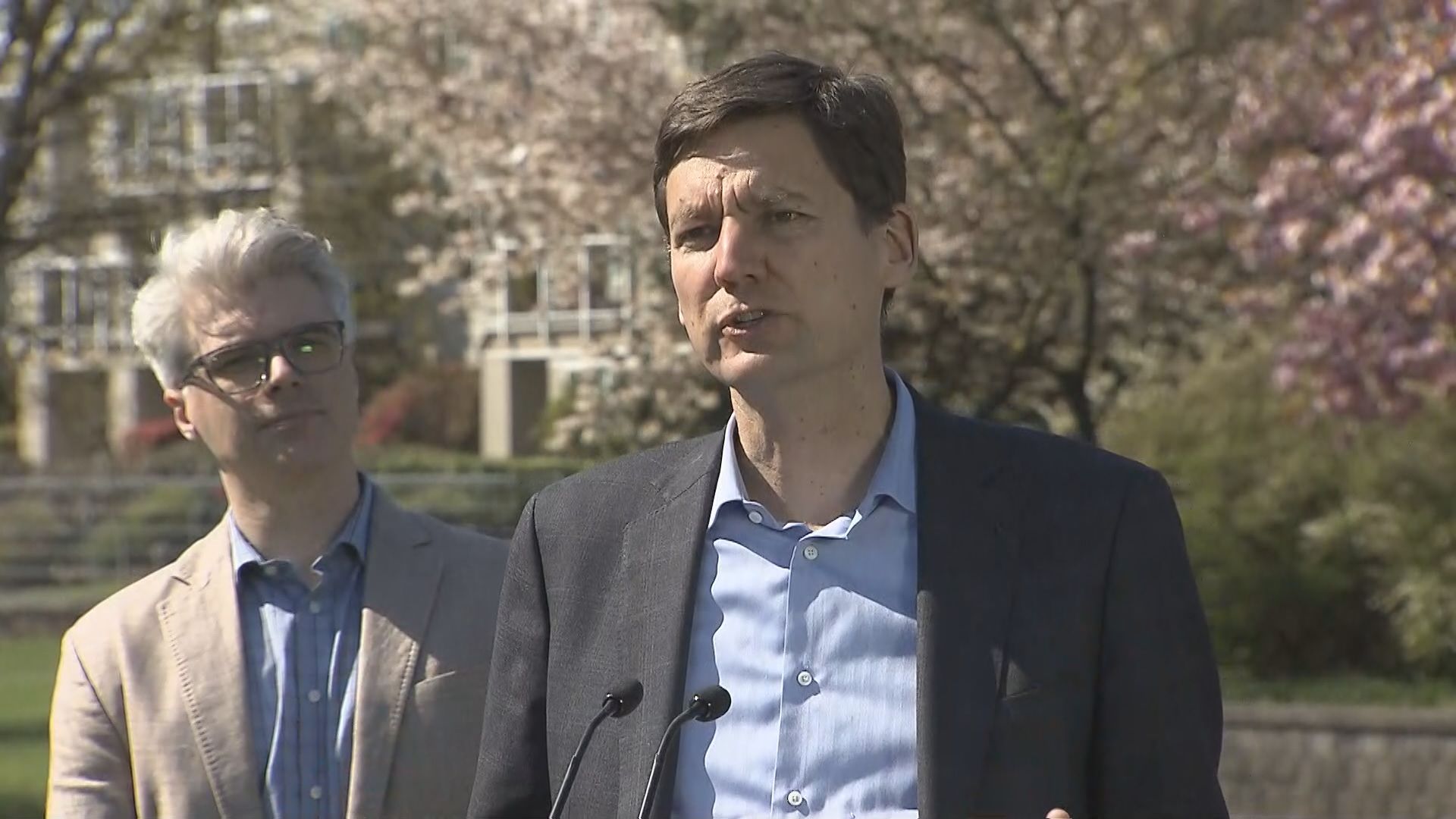
Premier David Eby says that as B.C. inches closer to new short-term rental rules taking effect, 17 communities have decided to opt into the restrictions.
The update comes as the regulations surrounding how many and what kinds of short-term rentals are allowed in B.C. come into effect on May 1.
The BC NDP tabled the legislation in October of last year which, once in effect, aims to return short-term rentals to the long-term rental market.
As of May 1, the province is requiring short-term rental platforms, like Airbnb and VRBO, to share data and to remove listings without business licenses and registration numbers “quickly.”
It is also limiting short-term rentals to a property owner’s principal residence — plus one additional unit or suite on that property — for municipalities with more than 10,000 people. Municipalities with fewer than 10,000 people, or those designated as resort municipalities, will be able to opt into the legislation.
Those communities that have opted in, like the resort municipality of Tofino, will see the new laws come into effect on Nov. 1. Some other communities that have agreed to the new rules are Kent, Gabriola Island, Bowen Island, Osoyoos, and Pemberton.
The province says through regulations, the fines for hosts breaking municipal by-law rules will increase to $3,000 from $1,000, per infraction, per day.
“Short-term rentals themselves are not the problem,” Eby said in the update Thursday. “What has been the problem is inadequate oversight over this sector. And a group of people who have … said I’d like to actually buy up a whole bunch of homes that would otherwise be rented by people, or what other otherwise be purchased by families looking for a place to live, and I’d like to operate a private hotel chain through Airbnb or VRBO.”
“To give you a sense of the scale of the problem we face in British Columbia with this kind of activity [from] this small group of individuals, we have 19,000 entire homes in our province that are available year-round on short-term rental platforms,” he continued.
“And I can tell you that there are 19,000 families and individuals that are looking for a place to live, to buy, to rent right now, that are in competition with people that are looking to operate homes as hotels.”
Data from McGill University released in 2023 showed that the top 10 per cent of hosts in B.C. earn nearly half of all revenue created.
Eby added that, starting Thursday, a portal will be available for people to report operators for going against the new rules, and also giving hosts a platform to check their requirements of operation.
“These rules balance the need for long-term homes, including people and tourism and hospitality industry where the need to accommodate guests. As the premier mentioned, people are seeing long-term homes open up for rent, and more short-term rentals are being listed for sale or becoming long-term homes for families and individuals,” Housing Minister Ravi Kahlon said.
The province reiterated Thursday that short-term rentals are still “welcomed” in B.C., as long as they operate within provincial and local rules.
“We encourage people to continue to explore beautiful British Columbia and stay in legal short-term rental accommodations. We want guests, hosts, local governments, and platforms to know what to expect May 1,” Kahlon added.
Short-term rentals create big economic impacts: Airbnb
In a statement Thursday, Airbnb claimed a newly released economic analysis shows it generated more than $2.5 billion “in economic impact across BC in 2023,” and supported more than 25,000 jobs in the province.
“The analysis shows that for every $100 spent on an Airbnb stay, guests spent an additional $229 on other goods and services such as local businesses, restaurants, attractions, shops, and more,” the short-term rental agency said.
Airbnb believes the new “strict” short-term rental laws are “putting at risk billions in tourism spending and economic benefits.”
“BC’s new short-term rental law is going to significantly impact the province’s tourism sector, just as peak tourism season arrives – taking extra income away from residents, limiting accommodation options for guests, and potentially putting at risk billions in tourism spending and economic impact,” said Nathan Rotman, Airbnb Canada policy lead in the statement.
“At a time when BC is facing record deficits and economic growth is slowing, these new rules hurt resident hosts, tourists, communities and the economy as a whole.”
Airbnb is also contributing to tax revenue in the province, the agency claimed, explaining, “British Columbian Hosts on the platform generated approximately $93 million in taxes in 2023, bringing much-needed tax revenue for a province that’s projected to face a record high $7.9 billion deficit.”
Group challenging legislation in court
The Property Rights Association of BC says it is challenging the legislation in court. Orion Rodgers, the group’s director, owns a short-term rental management company, and he says while he supports going after illegal operators and bringing regulations around licensing and data sharing, he does take issue with certain aspects of the rules.
“What we don’t support is cancelling existing contracts between hosts and guests,” Rodgers said.
“We don’t support changing the local government act to remove grandfathering of units, we don’t support them shutting down licensed and lawful operating short-term rentals.”
With files from Monika Gul.
You can watch CityNews 24/7 live or listen live to CityNews 1130 to keep up to date with this story. You can also subscribe to breaking news alerts sent directly to your inbox.
https://news.google.com/rss/articles/CBMiSmh0dHBzOi8vdmFuY291dmVyLmNpdHluZXdzLmNhLzIwMjQvMDQvMTgvYmMtc2hvcnQtdGVybS1yZW50YWwtcnVsZXMtbWF5LTEv0gEA?oc=5
2024-04-19 05:11:06Z
CBMiSmh0dHBzOi8vdmFuY291dmVyLmNpdHluZXdzLmNhLzIwMjQvMDQvMTgvYmMtc2hvcnQtdGVybS1yZW50YWwtcnVsZXMtbWF5LTEv0gEA
Tidak ada komentar:
Posting Komentar